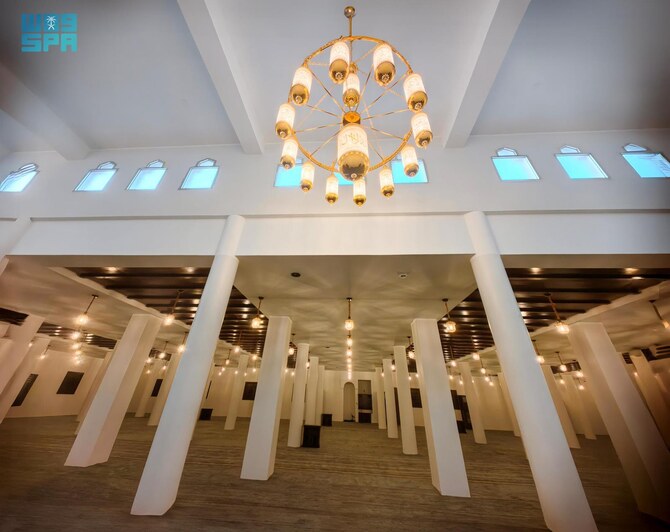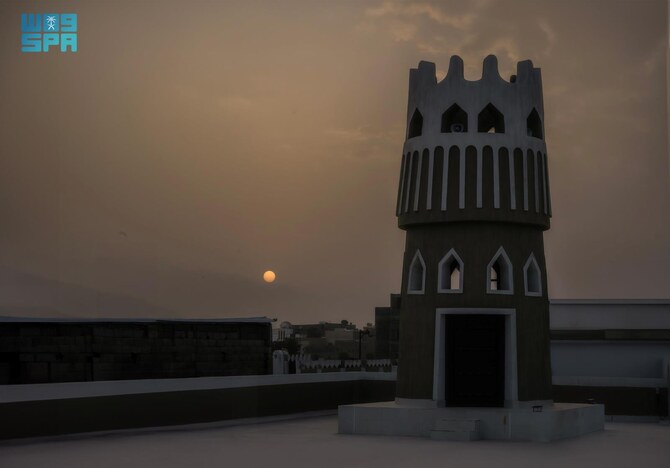RIYADH: Al-Zubair bin Al-Awwam Mosque, located near the historic Emirate Palace in Najran, is undergoing restoration as part of the second phase of the Prince Mohammed bin Salman Project for the Development of Historic Mosques.
The project aims to correct previous renovations that introduced non-authentic materials, restoring the mosque to its original heritage style, reflective of the Najran region, according to the Saudi Press Agency.
Built in 1966, the mosque spans 1,436 sq. meters and accommodates 1,000 worshippers, the SPA added.
Its construction follows traditional methods, featuring horizontal courses and roofing made from wood extracted from palm trunks, fronds, and tamarisk trees.
The restoration will use the same natural materials as the original construction, preserving the distinctive architectural character of Al-Zubair bin Al-Awwam Mosque — the first mosque in Najran’s old popular market area.
It is one of 30 mosques across 13 regions included in the project’s second phase, which covers six mosques in Riyadh, five in Makkah, four in Madinah, three in Asir, two each in the Eastern Province, Jouf, and Jazan, and one each in the Northern Borders, Tabuk, Baha, Najran, Hail, and Qassim.
Phase two follows the successful completion of phase one in 2018, which restored 30 mosques in 10 regions, the SPA reported.
The project balances traditional and modern construction standards, ensuring the sustainability of mosque components while preserving their heritage and historical features.
Saudi companies and engineers specializing in heritage restoration are leading the development efforts, according to the report.
The project’s four strategic objectives include restoring historic mosques for worship, preserving their architectural authenticity, highlighting the Kingdom’s cultural heritage, and enhancing their religious and cultural significance.
It also aligns with Saudi Arabia’s Vision 2030 by preserving architectural heritage and integrating it into modern mosque designs.





























